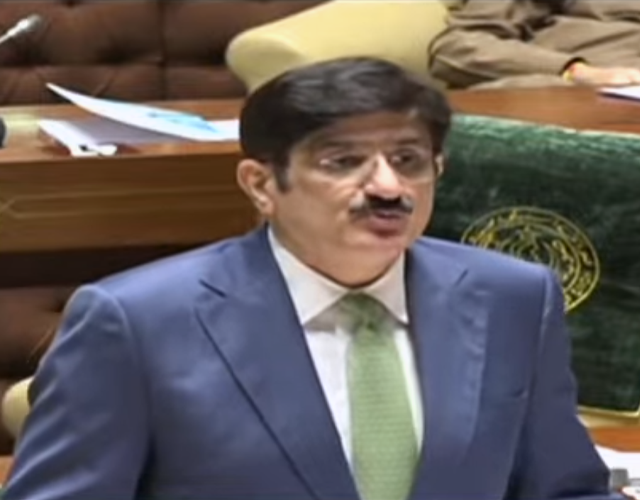PTBP Web Desk
Pakistan’s judicial and political circles, President Asif Ali Zardari on Friday accepted the resignations of Supreme Court judges Justice Mansoor Ali Shah and Justice Athar Minallah. The announcements came just a day after the president signed the controversial 27th Constitutional Amendment into law, legislation the two judges criticized as unconstitutional and damaging to the independence of the judiciary.
The President confirmed the acceptance of resignations through his official X account, signaling the formal conclusion of a process that had captured national attention. Justice Mansoor Ali Shah and Justice Athar Minallah had both submitted their resignations following the passage of the 27th Amendment, emphasizing that the changes imposed on the Constitution compromised the autonomy and functioning of the judiciary.
Justice Mansoor Ali Shah, in a detailed 13-page resignation letter issued in both English and Urdu, stated that his decision to resign was “in loyalty to the Constitution.” He described the 27th Amendment as a “grave assault” on the Supreme Court, arguing that it effectively dismantled the court’s independence, placed the judiciary under executive influence, and weakened the principles of constitutional democracy. Justice Shah highlighted that the changes introduced by the amendment made access to justice “more distant, more fragile and more vulnerable to power,” raising concerns about the erosion of legal safeguards for citizens.
Justice Athar Minallah echoed similar concerns in his resignation letter, asserting that the Constitution he had sworn to uphold “is no more.” He emphasized that the new legal framework could not be reconciled with the principles of judicial independence and warned that pretending otherwise would be misleading. Both judges had previously written to Chief Justice Yahya Afridi, requesting a full court meeting to discuss their concerns regarding the amendment and its implications on the judicial system.
However, according to a press release issued by the Supreme Court, the 27th Amendment was not addressed during Friday’s full court meeting. Instead, the session focused on the approval of the SC Rules, 2025. This omission has fueled further debate over the amendment’s adoption and its impact on judicial processes.
The 27th Constitutional Amendment received swift parliamentary approval amid contentious debate. On Thursday, the National Assembly passed the amendment with a two-thirds majority, adding eight new clauses, including significant revisions to Article 6(2). The updated clause now bars any court, including the newly established Federal Constitutional Court, from validating acts of “high treason.”
Following the National Assembly’s approval, the Senate passed the bill for a second time. Senate Chairman Yousuf Raza Gilani announced that 64 senators voted in favor, while only four opposed the amendment. Despite the overwhelming approval, the session was marked by protests from opposition members. Pakistan Tehreek-e-Insaf (PTI) senators staged a sit-in in front of the chairman’s dais, chanted slogans against the legislation, and tore up copies of the bill before walking out in protest.
Law Minister Azam Nazeer Tarar addressed the opposition’s concerns, asserting that perceptions regarding the abolition of the Chief Justice of Pakistan’s office were “entirely false.” He clarified that the current Chief Justice, Yahya Afridi, would continue to serve as the head of both the Supreme Judicial Council and the Judicial Commission of Pakistan. Tarar explained that the amendments were necessary to align the legal framework with the newly created Federal Constitutional Court and other constitutional reforms.
The 27th Amendment has drawn strong criticism from opposition parties, who accuse the government of consolidating power and undermining the judiciary’s independence. PTI Chairman Barrister Gohar Ali Khan labeled the legislation as “undemocratic” and warned that it would render the Constitution “meaningless.” He pledged to challenge the amendment through all available legal and constitutional avenues, emphasizing the need to safeguard judicial autonomy.
Several former judges and senior lawyers have also expressed concerns about the amendment’s implications for the balance of power between the executive, legislature, and judiciary. Legal experts argue that the changes risk concentrating authority in the hands of the executive while weakening institutional checks and balances that are fundamental to constitutional governance.
The resignations of Justices Mansoor Ali Shah and Athar Minallah mark an unprecedented moment in Pakistan’s legal history. Observers note that these resignations highlight deep tensions between the judiciary and the government, raising questions about the long-term impact of the 27th Amendment on judicial independence and the rule of law.
The political and legal controversy surrounding the amendment is expected to dominate discussions in the coming weeks. Analysts predict that legal challenges and public debates will continue, with potential implications for future judicial appointments, constitutional interpretations, and the functioning of the Supreme Court and Federal Constitutional Court.




